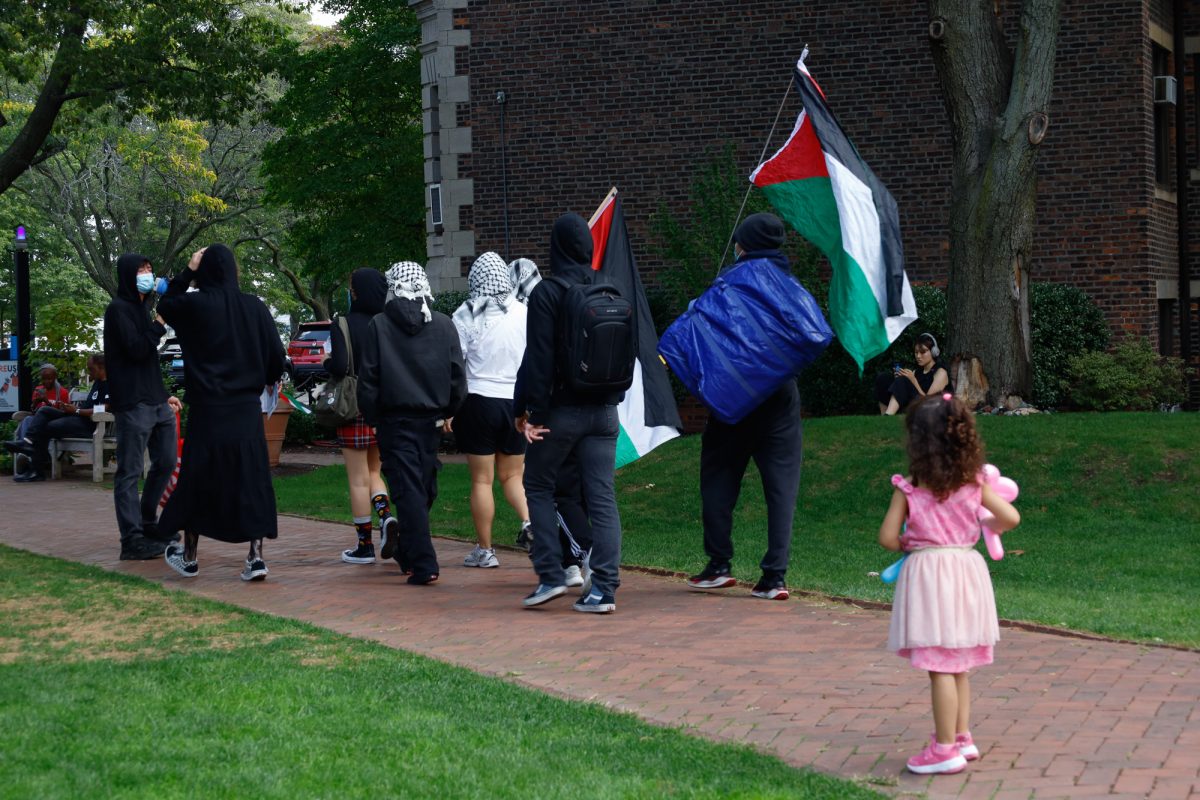The Coolidge Corner Theatre is now holding weekly open caption screenings as part of its effort to increase accessibility. More changes will come as its expansion project opens to the public in about a month.

Beth Gilligan, deputy director of the Coolidge, said open caption screenings are in response to input from members of the deaf and hard of hearing communities.
“Being a historic theater, [we try to] be as accessible as we possibly can and to cater to as many people as we can,” Gilligan said.
First-run films and new releases are now being provided to the Coolidge with open caption files, which makes digital projection an option, Gilligan said.
Currently, open caption screenings are only offered on Tuesdays between 6:30 to 7:45 p.m. and Thursdays between 12:45 to 1:45 p.m. Gilligan said this is the pilot stage, and screening times may be added or changed.
“We’ll see what the demand is like, and we can adjust based on that,” Gilligan said.
As of November 2016, movie theaters are required to have equipment that provides closed captioning — which, unlike open captions, can be turned off during screenings — and audio description for patrons. This requirement came into effect as part of the Americans with Disabilities Act Title III regulation.
In October 2021, AMC Theatres added open captions to certain showings in 240 U.S. locations. The Alamo Drafthouse Cinema in Seaport offers open caption screenings of new releases. Recent open caption screenings include “Poor Things,” “Taylor Swift: The Eras Tour” and “The Lesson.”
In compliance with the ADA, the Coolidge now offers select features with closed caption devices that display captions adjusted into the patrons field of vision.
Christopher Anderson, a sound mixer at WGBH and Boston University film and television professor, said there is discussion in the film industry over unintelligible dialogue and the trend of burying actors’ words.
“People that are not in need of that service are utilizing it as well,” Anderson said. “I hope that whatever stigma is attached to using captioning is removed by this being available.”
Ann Wiedie, a patron who was attending an open caption screening of “Origin,” has a membership at the Coolidge and sometimes uses captions at home.
“I usually find [the captions] helpful and not intrusive,” Wiedie said.
As the Coolidge applies services for those with hearing impairments, the theater will also have a new fully accessible space opening likely in late February to early March.
Expanding 14,000 square feet, the theater will add two new screens and an education center. All-gender restrooms, elevators and wheelchair accessible seats will also be included in the new space.
“As new technologies are developed, we are always open and willing to adopt them … As much as we can do and be the forefront of that, I think that’s something we’re committed to doing,” Gilligan said.
The Education and Community Engagement Center currently offers classes in the screening room with 43 seats. Classes are typically held in the morning, while seminars take place in the evening.
With the increased space and flexibility, Gilligan said the Coolidge will offer more classes at different times.
“[Film] can be a gateway to so many different areas … Few courses of this nature are really being offered to the general public around here, so just being able to … engage people with film culture is very exciting to us,” Gilligan said.
Courtney Dunsmuir, a patron at the Coolidge, said she purchased a membership because of the perks and learning experience.
“They do a free screening of a movie once a month called ‘Science on Screen’ which is really fun,” Dunsmuir said. “They have other researchers from the area come and talk about their research, which I thought was really cool.”
Dunsmuir is “a little half and half” when it comes to the theater expansions due to liking the old and historic feel of Coolidge.
“The main theater room, theater one, is just really beautiful. There’s this huge mural on the ceiling and all this old architecture,” Dunsmuir said. “Seeing old screenings feels so special.”
John Hall, a master lecturer and film and television professor at BU, said he believes that the Coolidge is one of the Boston area’s most important cultural institutions and to have an independent theater is essential for art and local films.
“Boston is historically a really strong film-going community and the Coolidge is something that I think many of us see as one of the lasting landmarks of our area,” Hall said.
Coolidge hopes to be New England’s leading film center and be a center for community and culture.
“We’re thrilled to finally be sharing this with the public,” Gilligan said. “It’s been long in the works, but it’s going to be absolutely transformational for Boston film culture.”


















































































































